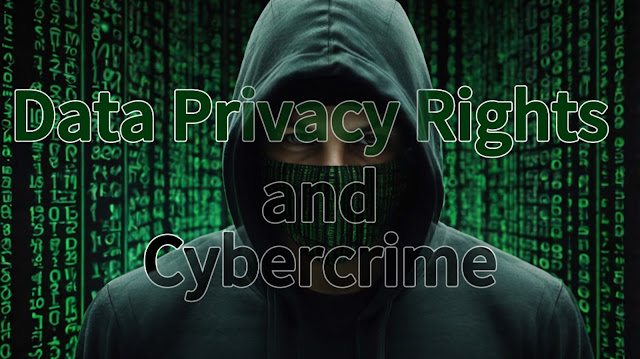- Get link
- X
- Other Apps
- Get link
- X
- Other Apps
Despite the Philippines having laws in place to protect citizens' privacy rights, many Filipinos remain unaware of these safeguards. This lack of knowledge has made them increasingly susceptible to a range of cyber and mobile crimes, from spam and phishing scams to data breaches and identity theft.
The Privacy Paradox in the Philippines
The Philippines is one of the most socially and digitally connected countries in the world, with over 80% of the population using social media. However, this digital immersion has not been matched by a corresponding understanding of privacy rights.
A 2021 survey commissioned by the National Privacy Commission (NPC) found that while public awareness of the Data Privacy Act (DPA) had increased from 13% in 2017 to 25% in 2021, most Filipinos with internet access still lacked awareness of proper internet security and social media usage. Only 9% of respondents said they were familiar with measures to prevent falling victim to cybercrimes.
This disconnect is further highlighted by the survey's finding that only 5% of respondents knew they could file data privacy complaints with the NPC. Instead, 43% said they would report issues to the police, while 32% simply didn't know where to turn. This lack of awareness about the NPC's role is particularly concerning, as the agency is tasked with administering and enforcing the DPA.
The Rise of Cybercrime in the Philippines
The Philippines' growing digital connectivity, coupled with limited privacy awareness, has created a prime environment for cybercriminals to thrive. According to a study by multinational credit reporting firm TransUnion, half of all adults in the Philippines have been targeted by digital fraudsters, while one in five have fallen victim to online scams.
The COVID-19 pandemic has exacerbated this trend, with a 4 percentage point increase in the number of Filipinos targeted by fraud schemes between the third and fourth quarters of 2021. Younger generations, such as Gen Z and millennials, have been found to be the most susceptible, with 54% and 52% respectively reporting being targeted by fraudsters.
Common cybercrime tactics employed against Filipinos include:
- Spam and Phishing Scams: Cybercriminals leverage the lack of awareness about internet security to bombard Filipinos with spam emails and messages containing malicious links or attachments. These phishing attempts often impersonate legitimate organizations or individuals in an effort to trick users into revealing sensitive information, such as login credentials or financial details.
- Data Breaches: Weak cybersecurity practices, such as the use of easy-to-guess passwords or the sharing of personal information on social media, leave many Filipinos vulnerable to data breaches. Once cybercriminals gain access to an individual's personal data, they can use it to commit identity theft, open fraudulent accounts, or even hold the data for ransom.
- Identity Theft: With personal information obtained through data breaches or phishing scams, criminals can assume a victim's identity to open new credit accounts, file fraudulent tax returns, or even obtain government benefits. Recovering from identity theft can be a long and arduous process for Filipinos.
The Data Privacy Act and Its Limitations
The Philippines enacted the Data Privacy Act (DPA) in 2012, which established the National Privacy Commission (NPC) as the country's data protection authority. The DPA aims to protect individual privacy and personal information, including in the digital realm.
However, the law's effectiveness has been hampered by the lack of awareness and understanding among Filipinos. As the NPC survey revealed, the majority of the population remains unaware of their rights under the DPA and how to exercise them.
Moreover, the DPA has been criticized for its limited scope, as it primarily focuses on the protection of personal information held by private organizations and government agencies. It does not adequately address the privacy challenges posed by social media and other emerging technologies, where much of the personal data of Filipinos is shared and vulnerable to exploitation.
Empowering Filipinos to Protect Their Privacy
To address the growing privacy and cybersecurity threats facing Filipinos, a multi-pronged approach is needed. This should include:
- Increased Public Awareness and Education: The NPC and other government agencies must intensify their efforts to educate the public, particularly in rural and low-income areas, about the importance of privacy rights and the tools available to protect against cyber threats. This can be achieved through targeted campaigns on traditional and social media platforms.
- Strengthening Data Privacy Legislation: The DPA should be reviewed and updated to better reflect the realities of the digital age, including the challenges posed by social media, cloud computing, and the Internet of Things. Lawmakers should also consider introducing specific provisions to address emerging privacy concerns, such as the non-consensual sharing of intimate images and the use of facial recognition technology.
- Enhancing Cybersecurity Measures: The government and private sector must work together to improve the overall cybersecurity posture of the Philippines, investing in robust infrastructure, implementing strong security protocols, and promoting digital literacy among citizens. This will help mitigate the risk of data breaches and other cyber threats.
- Strengthening the NPC's Mandate and Capacity: As the country's data protection authority, the NPC must be empowered with the necessary resources, expertise, and enforcement capabilities to effectively monitor, investigate, and penalize privacy violations. This will instill greater public trust in the agency and encourage more Filipinos to report privacy-related incidents.
Conclusion
By addressing the knowledge gap and strengthening the legal and institutional framework for privacy protection, the Philippines can empower its citizens to navigate the digital landscape with greater confidence and security. This, in turn, will help to curb the rising tide of cybercrime and safeguard the personal information of all Filipinos.

Comments
Post a Comment